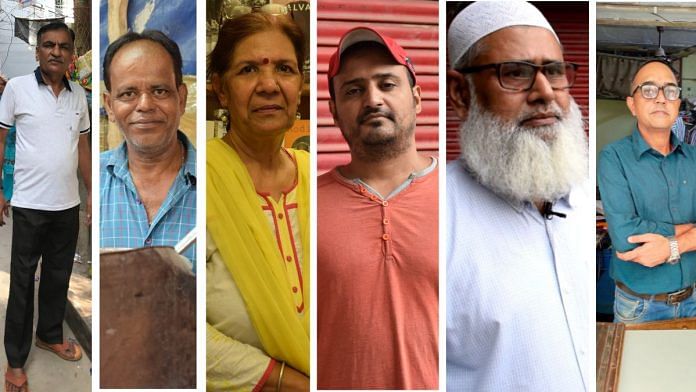Hushed whispers and conspiracies about an alleged murder fill in Delhi’s Shadipur neighbourhood. A loudspeaker blares: “Hindus unite”. In another corner, residents gathered to watch a Spanish play in Hindi about a mourning mother and her five daughters called Kali Odhni. Two gunshots on stage stir up the crowd. The four daughters mourn and shriek in horror.
It’s not easy to gain Shadipur’s validation.
A retired MTNL employee, a chai stall owner, two shopkeepers, a tailor and a businessman acted as Shadipur’s esteemed curators for the first-of-its-kind, three-weekend-long theatre festival called Shadipur Natak Utsav 2022. They handpicked 7 plays out of 76 applications from across India, many from well-known theatre groups.
A community initiative
Shadipur is surrounded by landmarks such as Pusa Institute of Technology and IAS coaching hub Rajendra Nagar, but for the most part, its name has been synonymous with a bus depot for decades. It is mostly made up of Partition migrants and also Muslim families who fled Emergency’s Turkman Gate firing incident.
But today, the residents are also the judges on a new talent hunt for the best plays to be staged in their neighbourhood.
Ravi Kumar, a shop owner and resident of Shadipur for 35 years, curated the festival for the second time. He said decision-making was not difficult because everyone had a common idea and goal in mind. Now there is a lot of interest among Shadipur residents. “Children and their parents eagerly wait for the event, and often enquire when the next play will be performed,” he said.
The plays were performed on 12-13 November, at the Studio Safdar, which was set up in memory of playwright and political theorist Safdar Hashmi, who was the founding member of Jan Natya Manch in 1973. The next performances will be held on 19-20 November and 26-27 November.
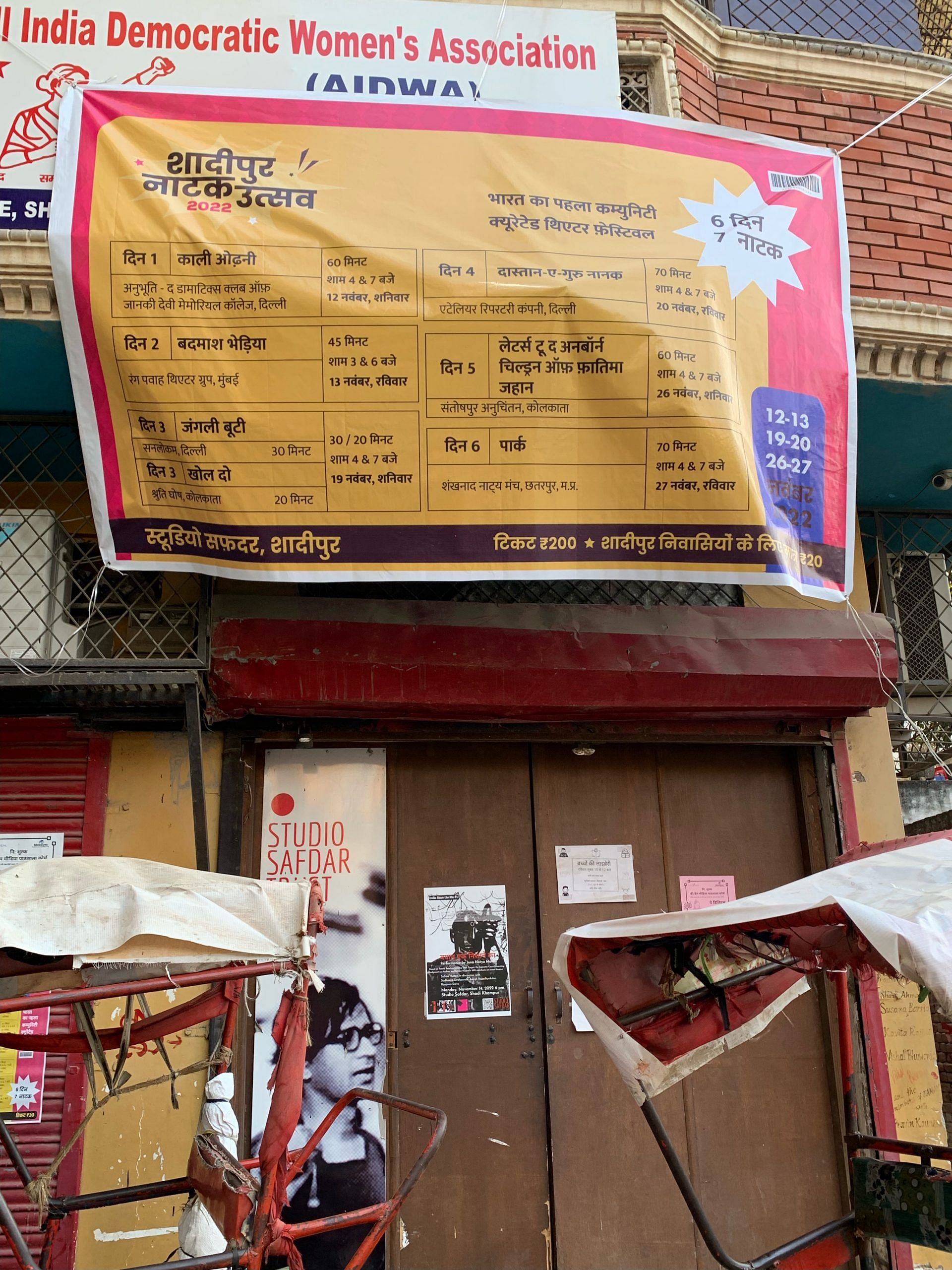
Popular festivals such as the one held in Mumbai’s Prithvi Theatre or Delhi’s Bharat Rang Mahotsav are backed by an eclectic and reputed group of curators with decades of professional experience. But Sudhanva Deshpande, the director of Studio Safdar, had something else in mind when conceptualising a theatre festival for the residents of Shadipur: “Why not go to the people?”
The group of six curators – Ramphal Singh, Iqbal Hussain, Kamlesh Kumari, Naseem Akthar, Dheeraj Sharma and Ravi Kumar – was briefed by Sanjana Kapoor, former head of Prithvi Theatre. In a two-day workshop, discussion swirled around questions of identity and its links to diversity.
Sharma, who is a tailor by profession, said one of the challenges was setting aside time from everyone’s jam-packed routines and schedules. “We selected those plays that were moving and resonated with us. It was very difficult to shortlist them but plays that talked about social issues like caste and gender were important to showcase to our community.”
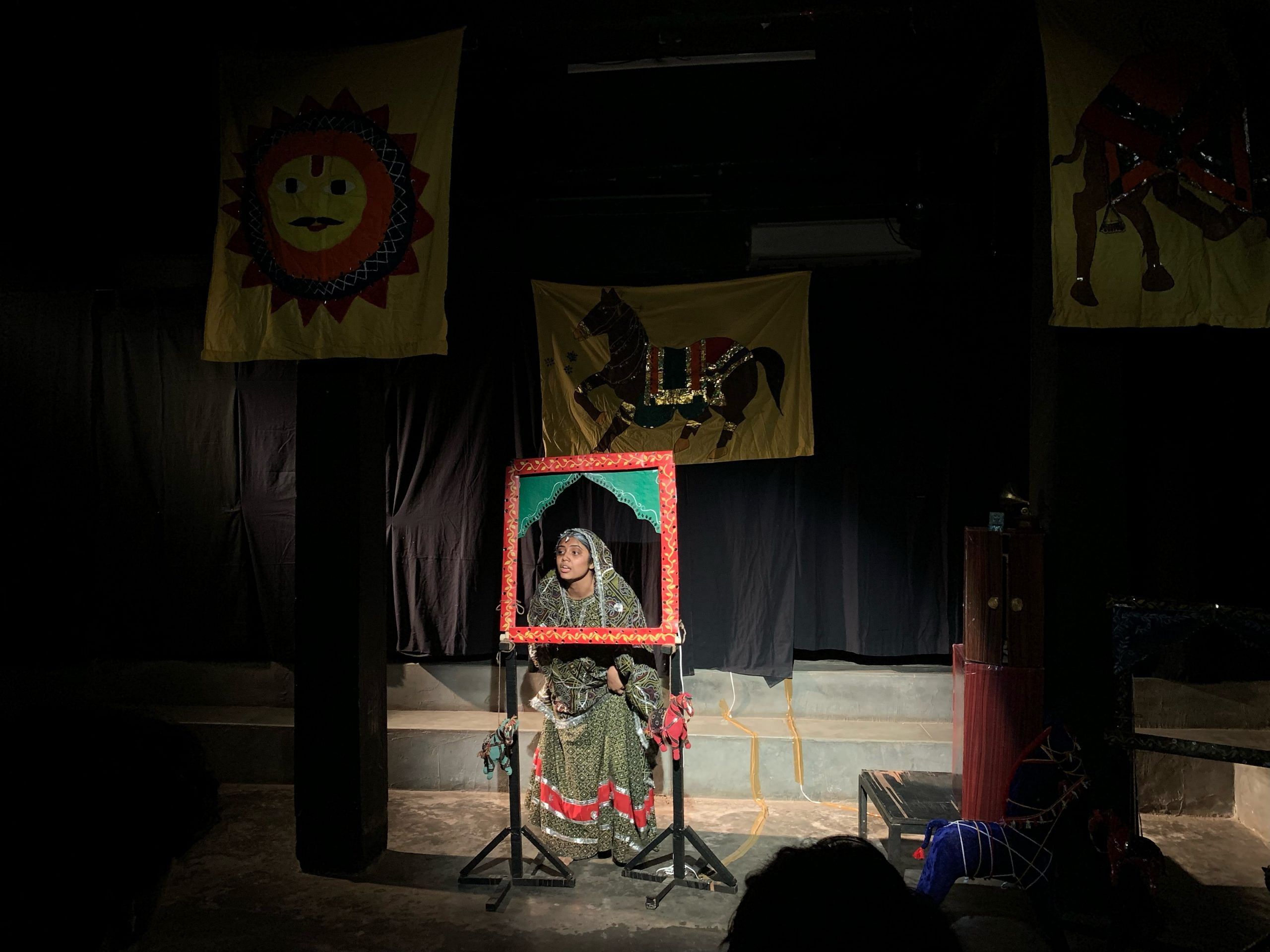
The 2022 Natak Utsav received an overwhelming response when it called for applications in early September. Programme manager Priyanka and Studio Safdar trustee Moloyashree Hashmi sifted through 76 applications and shortlisted 25 for the curators. Theatre groups and performers from Bengaluru, Lucknow, Goa, Hoshangabad and Shahjahanpur competed to get a chance to perform for the Shadipur community.
The applicants were required to fill out an online form with details about the group, a short synopsis and attach a video of their performance. “Time is a premium for these curators and getting everyone together for these three-hour sessions was a task,” Priyanka said.
Also read: Covid or Netflix, nothing can stop theatre. Hyderabad’s Qadir Ali Baig Festival shows why
It’s all built on trust
The festival takes a unique approach toward pricing its tickets – Rs 200 for the general public, Rs 100 for students, and Rs 20 for Shadipur residents. While children below the age of 13 can pay whatever they like, the festival is free for rickshaw pullers and other daily wage earners.
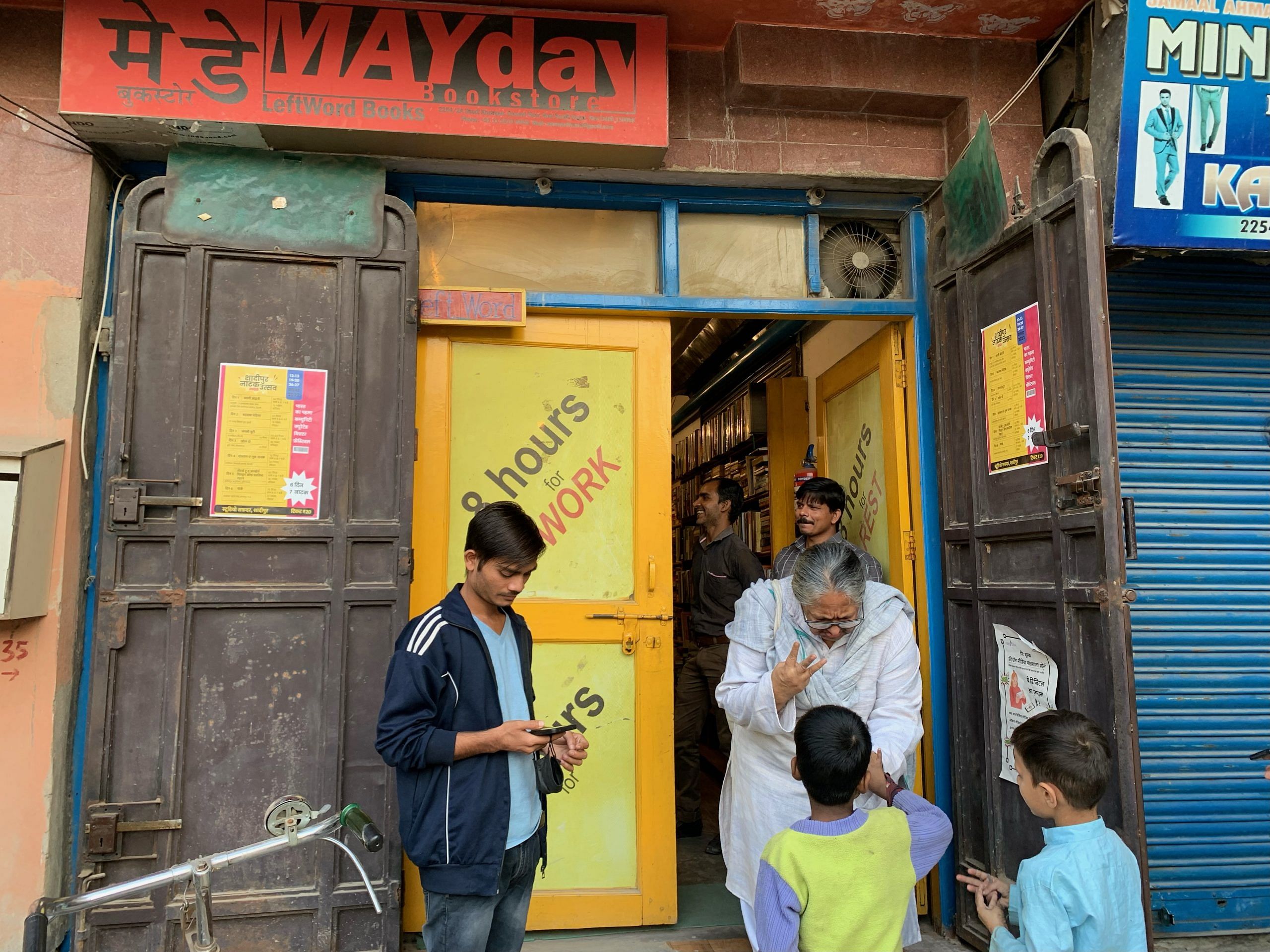
Deshpande recalls his discussion with the curators on the ticketing structure. “What if people impersonate?” was the first question. “And they answered it themselves. They know their community best. It’s built on the foundation of trust. And to maintain that, the expectation of trust is important.”
The ticketing charge for children was based on the idea of showing children that “there is value in theatre.” Deshpande said that the festival did not want to propagate the idea to children that theatre is for free. In 2019, with the first edition of the festival, children could be seen competing with each other, for who had the most punch holes in their tickets—to determine the number of plays they had seen. It was important for them to hold a ticket in hand and enjoy that “thrilling feeling”.
Also read: There was more to Vira Sathidar than ‘Court’. He fought caste with theatre for 40 years
Theatre can be inclusive
The curtain raiser of the festival was ‘Kaali Odhni’ performed by Anubhuti, the dramatics club of Janki Devi Memorial College (JDMC). Other names in the line-up were the Atelier Repertory Company from Delhi and the Rang Parvah Theatre Group from Mumbai.
‘Kaali Odhni’ is an adaptation of Federico Garcia Lorca’s much acclaimed 1936 tragedy, ‘The House of Bernada Alba’. Set in an affluent household in Rajasthan, the play tells the story of a repressive widow who forces her five unmarried daughters to remain in mourning for their dead father for five years. With its unique adaptive elements and style, ‘Kaali Odhni’ left the audience in a spell with its scathing critique of the institution of patriarchy and the matriarch’s staunch and outdated value systems that control the lives of her daughters.
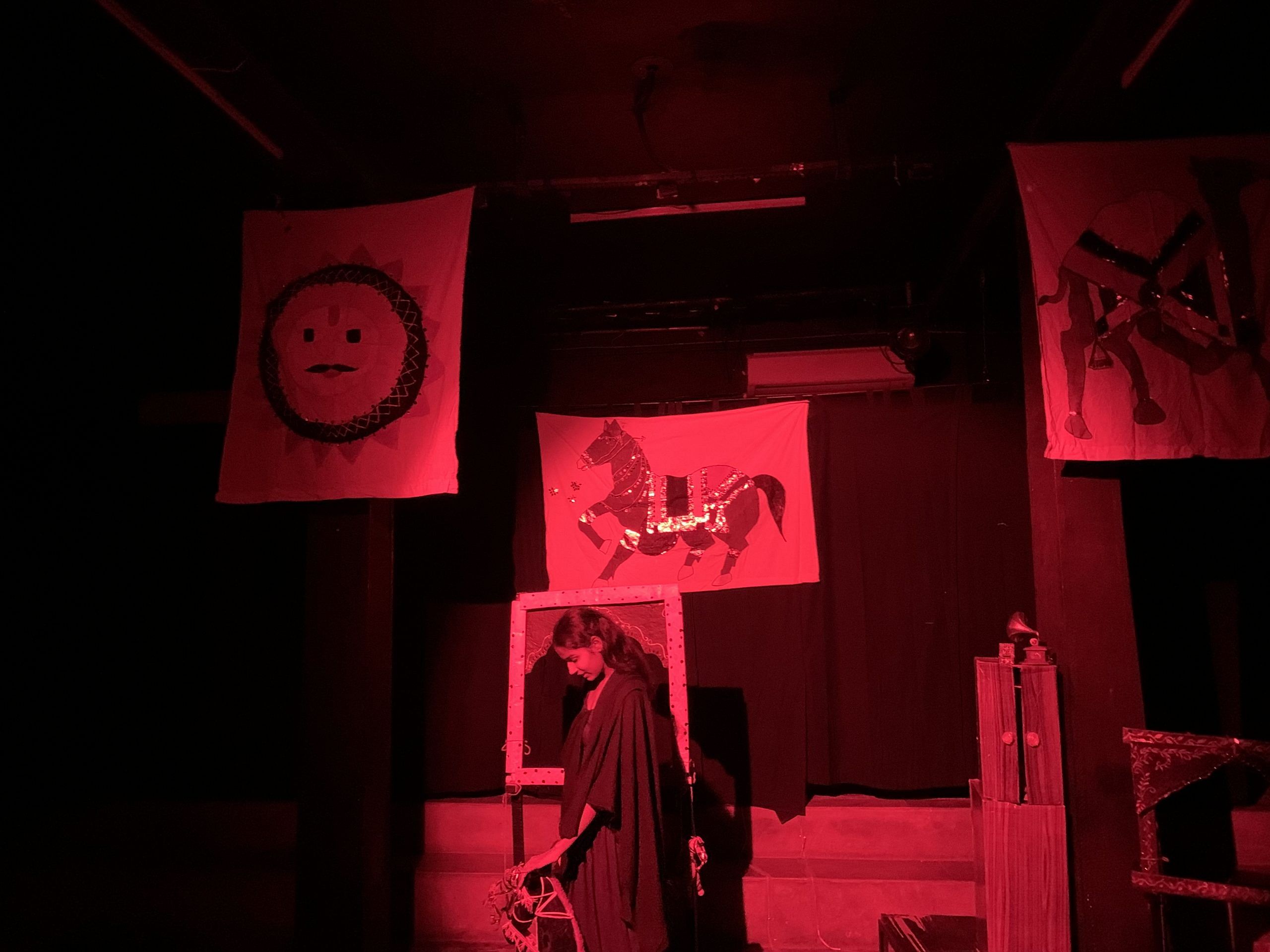
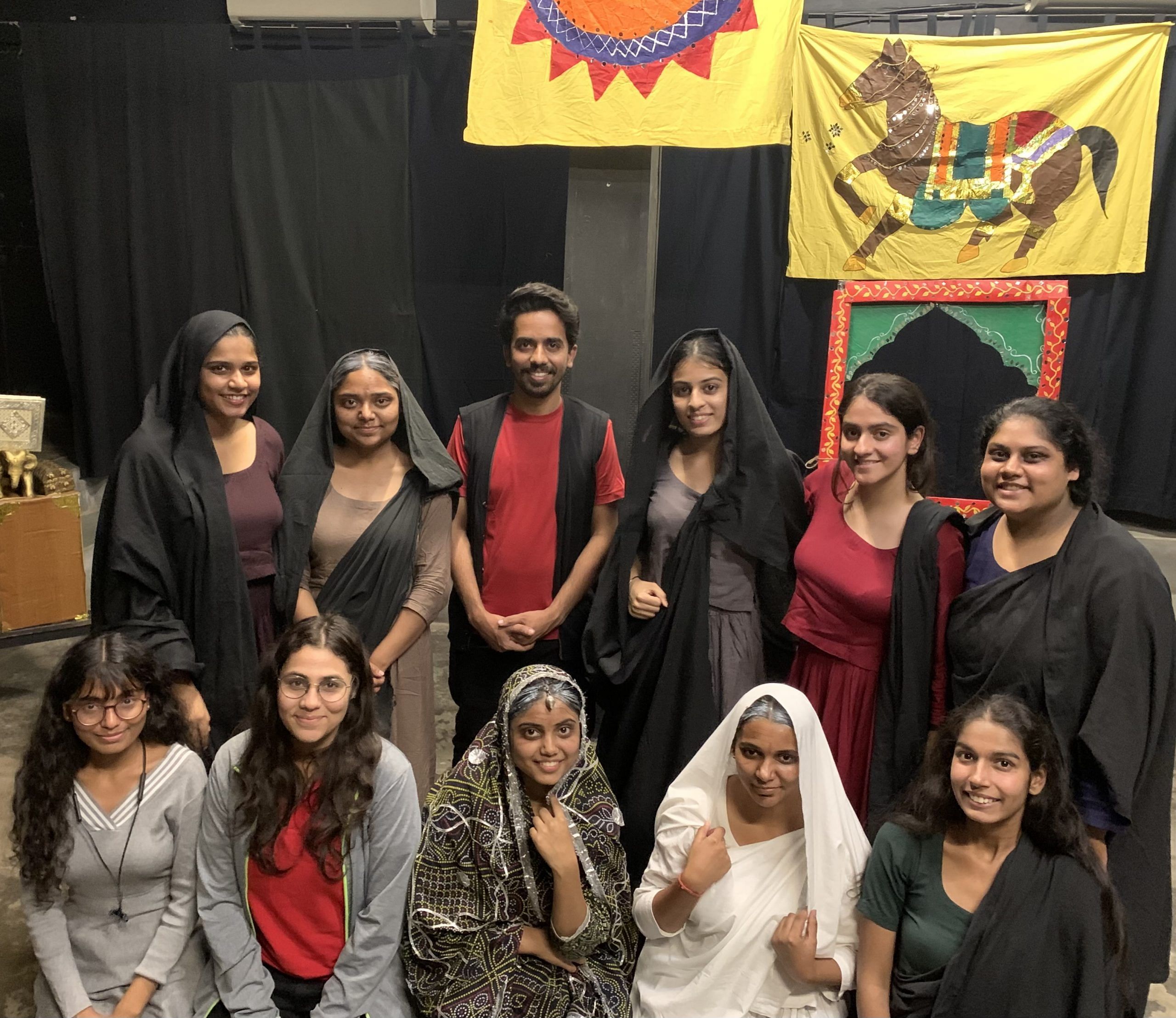
Shadipur Natak Utsav does away with the elitism that usually accompanies watching theatre. There is no room for the highbrow-ness that art appreciation usually entails, which opens up the possibility to rethink performance spaces that are more budget-friendly and become a more immersive and accessible entry point into the performing arts.
“When you decide to watch a theatre performance, you only think of Mandi House,” says Amit Tiwari, director of the play and theatre director of JDMC’s dramatics club. Tiwari added that a festival like this, which showcases different genres and styles and appeals to all age groups, brings a kind of inclusivity that is much lacking in the city’s theatre scene.
For a collegiate society, this experience stands out from the usual university competitions, annual production showcases and fests that occupy their events calendar. While Anubhuti appreciated the openness of the festival, the group also felt a competitive spirit. “With the community being the organisers and comprising the jury, we felt honoured to be chosen by them. It’s a different kind of victory, one that is earned, and that is a true honour,” said Sunidhi Khanna, one of the performers.
Shadipur Natak Utsav ensures that theatre isn’t left to enjoy behind closed auditorium doors in upscale posh buildings and centres and reviewed by famous academics and dramaturgs. There’s more magic when it seeps into the crevices of communities, promising a critical engagement with the individual’s immediate socio-cultural environment. And what’s better than starting it in a community like Shadipur?
(Edited by Prashant)


